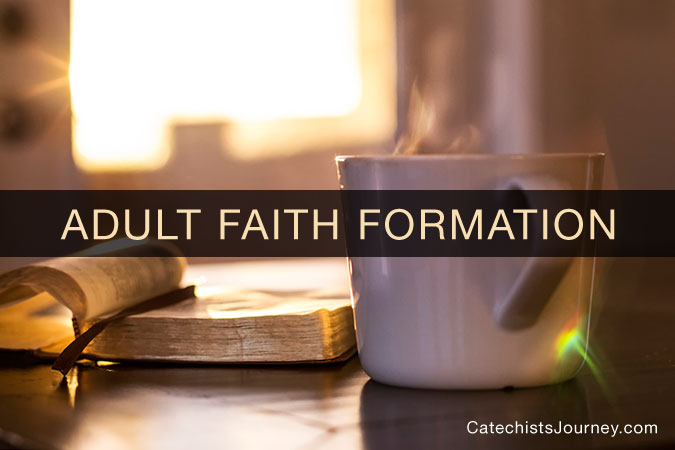
“I know why many religious education programs at parishes are struggling and yet why youth ministry is growing in some of those same parishes,” my friend Sarah said to me one day at a coffee shop.
“I’m sure that some of these parishes have various factors involved,” she continued, “but I have found a common issue in my 12 years of being a youth minister. It’s pretty simple too.”
I urged her to tell me more.
Sarah explained to me that at her parish, high school students have religious education class followed by optional youth ministry. The week after the tragic school shooting at the Marjory Stoneman Douglas High School in Parkland, the high school students went to their religious education class filled with fear and tension. Not once did the catechist acknowledge the school shooting, either in prayer or in conversation. Later on, Sarah welcomed those same students for youth group. It was a full group that included students who were not regular attendees. They didn’t want to talk about the lesson from their class; they needed to talk about the school shooting at Parkland.
Many of the students confessed that they had waited all day to talk to Sarah in confidence about their thoughts on the shooting. Many teared up as they shared how they live with a sense of fear that one day they might be a victim of such an act of violence. Like the great youth minister that she is, Sarah was able to unite the Gospel with their anguish. She was able to pray with them and speak faith and hope into hearts that were filled with sadness and fear.
Each week children will come into your classroom with their worries and fears. This is a wonderful gift for us as catechists to make our classrooms one of the few places where they can have an honest discussion with a faith-filled adult, free from the glare of the news and social media.
Sometimes these conversations happen organically in our classroom, and we are able to navigate them deftly; sometimes they surprise us, and we’re caught completely off guard. While we cannot spend all of our time addressing current events, it is important that we take the temperature of our classes to see what the students might need to talk about. Here are a few tips for engaging in dialogue with your students about current events within the light of the Gospel.
Establish guidelines for discussion and expectations. Establish guidelines at the beginning of the year with input from your students. Take some time to discuss boundaries and rules for respectful listening and healthy debate, and set time limits for conversation.
Be clear about your role as catechist and facilitator. In addition to your role in helping students understand the faith with regard to any particular issue, you are also present to facilitate healthy, respectful dialogue in a safe, structured environment that is centered on the Gospel.
Connect the conversation with the Gospel. Be prepared to facilitate a Gospel-centered conversation that brings Jesus and the Gospel into focus. Research Jesus’ teachings and the teachings of the Catholic Church that are relevant to the issue at hand. Be clear and compassionate about sharing these teachings with your students. Share personal witness if appropriate and stories from the lives of the saints or holy men and women.
Unless we bridge the gap between faith and life, young people will continue to write off religion as irrelevant and outdated. Good preaching and good catechesis should be balanced by keeping a newspaper in one hand and the Bible in the other. This helps to ground our efforts in the present while casting an eye to the future so that we can prepare accordingly.
How do you integrate current events into your classroom? Share your insights and best ideas with us.





Julianne, thanks for this extremely important and timely post. You are absolutely correct in asserting that, unless we address real life “points of pain” we run the risk of being written off as “irrelevant and outdated.” If we as catechists remain silent in the face of real life issues that are sources of great anguish for those in front of us, our authority and credibility will be diminished and rightfully dismissed. We will be seen as caricatures whose authority should be as easily dismissed as the character Frank Drebin from this famous scene from The Naked Gun: https://www.youtube.com/watch?v=pdFl__NlOpA. It is the duty of anyone in a leadership position – and especially in faith formation circles – to, at the very least, acknowledge the pain, doubt, suffering, and confusion people are experiencing and to vocalize our shared desire for God to bring healing to whatever crisis we face. We do not have to be experts to do that nor do we set ourselves up as counselors, therapists, or pundits on the topic at hand: we simply acknowledge the brokenness of our reality, listen to the cries of pain, and call upon God to hear our prayers of anguish and to bring us healing. Thanks for your bold words.